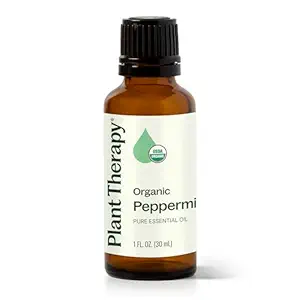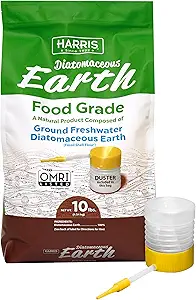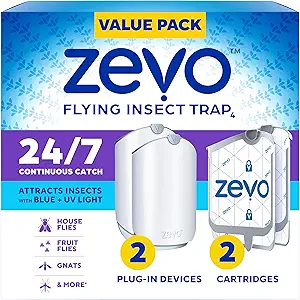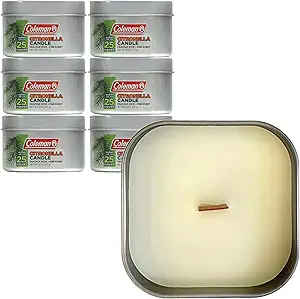Mastering Natural Pest Control: 10 Powerful Solutions That Actually Work
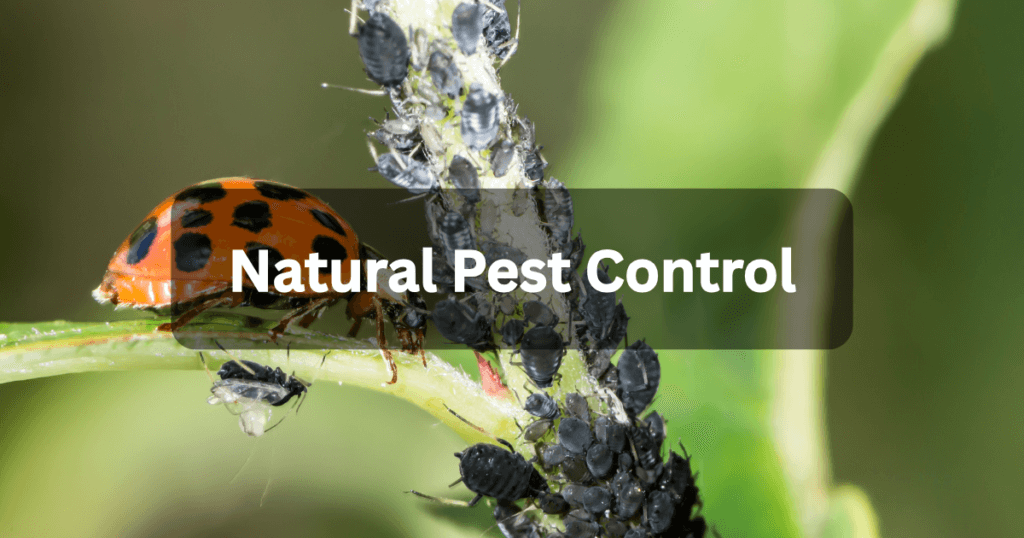
Some of the links in this post are affiliate links. As an Amazon Associate, we earn a referral fee from qualifying purchases—at no extra cost to you.
Are bugs, rodents, or other unwanted guests turning your cozy home into a battlefield? You’re not alone—and you’re not powerless either. Natural pest control is your secret weapon to fight back—without putting your health or the environment at risk. Whether you’re a parent, a pet lover, or just someone who wants to avoid toxic chemicals, this guide will walk you through proven, effective methods that really work.
Let’s dive into the world of natural pest control—the safe, affordable, and surprisingly simple way to keep your space pest-free.
Table of Contents
Why Natural Pest Control Is the Smarter Choice
We’ve been conditioned to believe that stronger chemicals mean better results. But that’s far from the truth when it comes to pests.
The Hidden Dangers of Chemical Pesticides
Chemical pesticides may offer quick fixes, but they often come with serious consequences. From skin irritation to long-term respiratory problems, these substances can impact your health more than you realize. Not to mention the environmental toll—they pollute water sources, kill beneficial insects like bees, and disrupt ecosystems. Ever noticed headaches or dizziness after using store-bought bug sprays? That’s your body telling you something’s not right.
How Natural Methods Protect Your Family and Pets
Natural pest control keeps your family safe from both pests and poisons. Imagine not having to worry if your toddler touches a sprayed surface or if your dog licks the floor. That peace of mind is priceless. Natural methods often target pests without harming other living beings. It’s a win-win—you get rid of pests and keep your household safe.
Understanding the Basics of Natural Pest Control
Before we jump into the solutions, it’s good to understand what makes natural pest control different—and better.
What Is Natural Pest Control?
Natural pest control involves using substances or strategies derived from nature—plants, minerals, or living organisms—to prevent or eliminate pests. It skips synthetic chemicals and leans on what Mother Nature already provides. Think of it as pest control that works with nature, not against it.
Key Principles Behind Eco-Friendly Pest Management
- Prevention is key: A clean, well-maintained home is your first line of defense.
- Use of natural repellents: From essential oils to herbs, many natural substances deter pests.
- Biological allies: Introducing predators like ladybugs or nematodes can help keep harmful pests in check.
- Sustainable practices: Solutions that don’t destroy the ecosystem but restore balance.
Now that we’ve covered the foundation, let’s get into the good stuff—10 powerful natural pest control methods you can start using today.
10 Proven Natural Pest Control Methods for Your Home
Essential Oils – Nature’s Pest Repellents
Certain essential oils are not only pleasant for humans but absolutely hated by bugs.
- Peppermint oil: Great for ants, spiders, and mice.
- Lavender: Repels moths, fleas, and flies.
- Tea tree oil: Effective against lice and mosquitoes.
How to use: Mix 10–15 drops of essential oil with water in a spray bottle. Spritz around windows, doors, and baseboards.
Try the Plant Therapy Essential Oil Pest Control Kit, which includes peppermint, tea tree, and lavender oils—perfect for natural pest control with child-safe, 100% pure ingredients.
Diatomaceous Earth – The Natural Insect Killer
This fine, powdery substance is made from fossilized algae. It’s harmless to humans and pets but deadly to bugs with exoskeletons.
Sprinkle it around baseboards, behind appliances, or even in the garden. It dehydrates pests like ants, roaches, and bed bugs without toxins.
The Harris Diatomaceous Earth Food Grade with Powder Duster is an excellent choice. It’s food-grade and comes with a powder duster for easy application in hard-to-reach areas.
Neem Oil – The All-In-One Organic Solution
Derived from the seeds of the neem tree, this oil is a miracle in pest control. It disrupts the reproductive system of pests and acts as a repellent and insecticide.
Neem oil is especially effective for:
- Aphids
- Mealybugs
- Whiteflies
- Mites
Just dilute with water and a few drops of dish soap and spray it on affected plants.
Use Garden Safe Neem Oil Extract Concentrate, which is OMRI-listed for organic gardening and works wonders for indoor and outdoor plants.
Companion Planting in Gardens for Pest Resistance
Some plants naturally repel bugs. By planting them near your veggies or flowers, you create a natural barrier.
- Marigolds repel nematodes and beetles.
- Basil keeps mosquitoes and flies away.
- Garlic and onions deter aphids and caterpillars.
Nature knows how to balance itself—you just need to plant smart.
Homemade Natural Sprays That Actually Work
You don’t need a lab—your kitchen has everything you need.
Garlic-Pepper Spray
Blend garlic, chili peppers, and water. Strain and spray around your garden or kitchen. It’s a spicy surprise that bugs won’t enjoy.
Vinegar and Lemon Spray
Mix equal parts vinegar and lemon juice. This solution is especially effective for ants and fruit flies.
Beneficial Insects – Let Nature Do the Work
Not all bugs are bad. Some are actually your allies.
- Ladybugs feast on aphids and whiteflies.
- Praying mantises are generalist predators.
- Nematodes (microscopic worms) can control soil-dwelling pests.
You can even buy these good bugs online and release them in your garden.
Physical Barriers and DIY Traps That Stop Pests Fast
Simple household items can make effective pest deterrents.
- Copper tape around plant pots deters snails and slugs.
- Beer traps lure and drown garden pests like slugs.
- Sticky traps are perfect for catching flies and gnats.
Sometimes, going low-tech works best.
The Catchmaster Sticky Fly Traps are a highly rated non-toxic solution that works indoors and outdoors to capture flying pests.
Clean Living: How Tidiness Prevents Infestation
This isn’t just about being neat—it’s about cutting off pest resources.
- Seal food in airtight containers.
- Vacuum regularly.
- Fix leaks and eliminate standing water.
Pests thrive on mess and moisture. Cut off their access, and they’ll move on.
Natural Repellents for Rodents and Larger Pests
Mice, squirrels, and raccoons can be repelled naturally too.
- Peppermint oil: Soak cotton balls and place near entry points.
- Cayenne pepper: Sprinkle in garden beds or trash areas.
- Ammonia-soaked rags: The smell mimics predator urine.
It’s all about making your home smell like danger to them.
Eco-Friendly Pest Control for Indoor Plants
Fungus gnats, aphids, and spider mites love houseplants. Keep them away with:
- Neem oil spray
- Cinnamon sprinkled on soil (acts as antifungal)
- Sticky traps to catch flying bugs
Keep leaves clean and avoid overwatering—that’s half the battle.
Try Gideal Dual-Sided Yellow Sticky Traps (20-Pack) designed specifically for potted plants to catch fungus gnats and other flying pests.
Room-by-Room Natural Pest Control Tips
Kitchen Hacks to Keep Ants and Roaches Out
- Wipe counters with vinegar daily.
- Store sugar and flour in glass jars.
- Keep sink drains clean with baking soda and vinegar.
Bedroom Solutions to Avoid Bed Bugs
- Vacuum mattresses and wash sheets in hot water.
- Use diatomaceous earth around the bed frame.
- Inspect second-hand furniture carefully.
Natural Pest Control in the Bathroom
- Fix leaks to avoid moisture-loving bugs like silverfish.
- Clean drains with vinegar and baking soda weekly.
- Use essential oil sprays on tile corners and under sinks.
Garden and Outdoor Tips to Deter Invaders
- Keep compost bins sealed.
- Trim back branches near windows.
- Use citronella candles and torches to repel flying insects.
The Coleman Citronella Candle Outdoor Tin (6 oz) is wind-resistant and great for patios, decks, or picnic tables to keep mosquitoes at bay.
Mistakes to Avoid When Using Natural Pest Control
- Overusing essential oils can irritate pets.
- Ignoring entry points—seal cracks and holes!
- Expecting instant results—natural methods take time but work consistently.
When to Call a Green Pest Control Professional
If you’re feeling overwhelmed or dealing with a large-scale infestation, it’s best to call in professional pest control services. Trained experts have the tools and experience needed to handle severe cases quickly and effectively. When choosing a company, look for those that use organic, plant-based solutions instead of harsh synthetic chemicals. This way, you can restore your home to a pest-free state while still aligning with your eco-conscious values.
The Future of Pest Control: Going All-Natural
With growing awareness around sustainability and wellness, more people are ditching poisons and embracing nature. Natural pest control is not just a trend—it’s the future. Imagine a world where your home is protected, your air is clean, and your garden thrives—all without a single harsh chemical. That’s the power of nature when you harness it right.
Conclusion: It’s Time to Take Control—Naturally
Pests don’t have to win—you have more control than you think. You also don’t have to sacrifice your family’s health or the environment just to keep unwanted bugs at bay. Natural pest control methods offer a smart alternative, combining strong results with gentle, non-toxic ingredients. With these solutions, you get effective protection that’s tough on pests but safe for your home, your loved ones, and the planet.
You’ve now got a full arsenal of eco-friendly tactics. So why not start today? Ditch the chemicals, trust in nature, and take control of your home—naturally.
FAQs – Natural Pest Control
1. How can I safely store natural pest control products to maintain their effectiveness?
Store natural pest control products like essential oils, neem oil, and diatomaceous earth in a cool, dark, and dry place. Keep them tightly sealed in their original containers to prevent contamination and degradation. Avoid exposure to direct sunlight and extreme temperatures, which can reduce their potency.
2. Are there any natural pest control methods that are safe to use around pets and small children?
Yes, many natural pest control methods are safe around pets and children when used properly. For example, diatomaceous earth (food grade) is non-toxic, and diluted essential oils can be safe if applied carefully. However, some oils can irritate pets if overused, so always research each method and supervise use around vulnerable individuals.
3. How often should I reapply natural sprays like neem oil or essential oil mixtures for best results?
Reapplication frequency depends on the product and infestation level. Generally, neem oil and essential oil sprays should be applied every 7–14 days or after heavy rain if used outdoors. Regular monitoring of pest activity will help determine if more frequent applications are needed.
4. Can natural pest control methods prevent pests from developing resistance like chemical pesticides do?
Yes, natural pest control methods typically have multiple modes of action and are less likely to lead to pest resistance compared to synthetic chemicals. For example, neem oil disrupts pest reproduction in several ways, making it harder for pests to develop resistance.
5. What are the signs that a natural pest control method isn’t working and it’s time to call a professional?
If pest populations continue to grow despite consistent use of natural methods, or if infestations cause significant damage to plants or property, it may be time to consult a professional. Also, if pests reappear quickly after treatment or if the infestation is widespread and persistent, expert intervention can ensure safe and effective control.
Other Useful Resources Related To Natural Pest Control
- Integrated Pest Management (IPM) Principles – U.S. Environmental Protection Agency (EPA)
https://www.epa.gov/safepestcontrol/integrated-pest-management-ipm-principles
This resource explains the EPA’s approach to Integrated Pest Management, a sustainable method combining biological, cultural, and physical tools to control pests effectively while minimizing environmental impact. - Organic Pest Control Methods – SDSU Extension
https://extension.sdstate.edu/organic-pest-control-methods
The SDSU Extension provides practical guidance on organic pest control techniques including the use of beneficial insects, natural pesticides, and crop management strategies suitable for gardeners and farmers. - Biological Pest Control – Wikipedia
https://en.wikipedia.org/wiki/Biological_pest_control
A comprehensive overview of biological pest control methods such as introducing natural predators, parasites, or pathogens to keep pest populations in check, explained in accessible language. - Natural Pest and Disease Management – Gardening Solutions by UF/IFAS
https://gardeningsolutions.ifas.ufl.edu/care/pests-and-diseases/pests/management/natural-pest-and-disease-management/
This page offers insights into natural pest and disease management techniques focusing on environmentally friendly practices and biodiversity’s role in preventing pest outbreaks. - Natural Pest Control Methods: An Eco-Friendly Guide – All Safe Pest Control
https://www.all-safe-pest.com/blog/2025/february/natural-pest-control-methods-an-eco-friendly-gui/
An informative guide discussing eco-friendly pest control options like essential oils, diatomaceous earth, and beneficial insects, helping readers choose safe and natural solutions.
